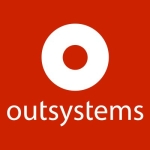What is our primary use case?
Our primary use cases for ServiceNow Now Platform include use incident management, problem management, case management, and our asset management.
It's not used much for the business management part of it, though it's being assessed for it. We have other tools to manage that. In my organization we have the scenario where we will integrate with a couple of other tools which we have already purchased, which are used for the information management part of it. These will be integrated with this Now Platform.
Another area which is currently being looked into but not yet implemented, is the compliancy part. They might go for it in future. One more thing is the security part. Though it is not yet being employed that much, it has a lot of interest. I can see a lot interest in this area. At times there is strategic interest in digitalization, so we might look into the analytics. There are more improved analytics features which are coming with the new versions of ServiceNow, which are also interesting.
What is most valuable?
ServiceNow offers a lot of features when it comes to IT service management and IT operations management. What interested me in ServiceNow was that a lot of service management, mostly our IT service management, are using ServiceNow as a tool.
I really doubt that we are making full use of the out-of-the-box features which ServiceNow provides in the sense that we have the tickets assigned to one of the assignment groups. People are taking a lot of time to really work on the ticket and provide a correct solution. I was looking at different features, including the machine learning and predictive analytics features available in ServiceNow, which can help solve the current issues we face.
In Power Apps, there is a central area which works on the automation part of it. Even though in ServiceNow I see a lot of features in the process automation part of it, when it comes to large teams with a lot of "in development areas," we're just getting into how we can automate the mundane processes. Plus, there is a robotic process automation team using UI who is looking into those areas.
Also, as part of the development tool, I analyzed to see how their domain expertise was. With a little knowledge of the technology and coding experience, they can make your software domain expertise come up with solutions very quickly.
However, since we are already using Microsoft extensively and we already have Microsoft Office 365 and since we have adopted Microsoft as the Cloud provider platform, it made sense to take the Power Apps subscription. Even though ServiceNow has some integration capability with Azure, Power Apps was more in line with developing apps and the development of UI.
When it comes to ServiceNow, I haven't done much research on the UI part. I think that you can do different coding in ServiceNow. It was more about usage of tables, creating API's, and creating application codes for when you work on tables. But in Power Apps I could see features having a use, so I can work with this, and you create UI's out of it. Maybe my knowledge is limited and I may not have explored all of the features in ServiceNow, but this is one thing which on a high level I have noticed.
Also, with Power Apps you can attach it to multiple data sources, just like in ServiceNow.
I think that both have their own features and pros and cons. I don't think that Power Apps can fully replace ServiceNow when it comes to all the features ServiceNow provides in terms of service management or operation management capabilities.
Power Apps is mostly if you want to develop a web application or a mobile application and if you have some data source. If you have a back end already. If you have a database and you specifically want to develop a front end or a UI for that. Then I would prefer Power Apps.
Power Apps is mostly for the use cases where you want to give an API further uses to get specific data from the back end. When it comes to ServiceNow, there are not many purposes I can see regarding the service management part of it. It can be used as a ticketing tool that we can use for operations management. It can be used for server monitoring, like for our infrastructure management and monitoring purposes.
As I told you, we have within the organization a lot of tickets for cases which are being raised for problems with the application or the infrastructure or even for knowledge related issues. I am from the architecture central system, and if the people need help to find the architecture or they need a suggestion, they raise incidents of tickets using the ServiceNow Now. I have noticed that cases are not getting assigned to the critical people if there are so many different teams. A case for a problem which arises might fail to be worked on by some other members in the team. These are the areas that I feel the machine learning capabilities of ServiceNow offer.
It can give you a lot of improvement in the way the tickets get properly assigned to the right group. It saves a lot of time which saves the end user a lot of frustration, and they will be getting the correct group who can help them on their problem very quickly, preventing a delay and then after lot of time it come back to the admin group, and then the person who's working on it will do a relief study of the problem.
It leads to a faster resolution of the problem.
That is my own experience. Then, if we can have chat bot services, that is another area of network manual intervention. That is what really attracted me when I was into the features of the latest ServiceNow.
What needs improvement?
As for what can be improved, the licensing and the pricing models are confusing. At least I found it a bit confusing. There are a lot of hidden costs in all these.
It's a bit costly. But as a cloud application platform and a service provider, I think ServiceNow is now really improving. When comes to the cost part it is a bit tricky to understand. It's not that straightforward.
Like other tools or other platforms, when we are in touch with the ServiceNow team, we talk about including everything from the information management in the entire software development. I feel they are doing well.
It has a lot of good documentation and a lot of good training available which helps the end user.
The programming language is currently limited to JavaScript. So I would like to see more programming languages available, especially since they have come up with the machine-learning features. Some more languages would be an additional improvement.
I see that there are so many connectors available for connecting it to other service providers and other platforms, for example OpenText, which we are using. There are out-of-the-box connectors to connect to OpenText and others. That is something that I'd like to see.
Other areas of improvement are support for more programming languages and much more capability-building when it comes to the machine-learning part of it. There is especially a need for a scope of improvement in the analytics and the machine-learning part of it, because they are always adding more modules.
For how long have I used the solution?
I have been using ServiceNow Now Platform for about five, six months.
What do I think about the stability of the solution?
I have not found any bugs or glitches. I have tried looking into the IntegrationHub features. I have tried looking into the APF features with ServiceNow. I was involved in setting up the SSO for ServiceNow across all the instances that have a card. It is not ready. We have still some migration to do, but SSO set up is ready. I set up the mail server.
I didn't find problems. My experience was good. It was not was complicated for me to understand. The tutorials and all the trainings which ServiceNow provides for us to set up the infrastructure or to try out the new features ensured it was not that complicated.
I tried these new features which have not yet been adopted in the organization. But I can not blame the platform for that, because I was trying the Virtual Agent features with my own personal developer on that.
The problem is you really need to have data to work on. If you want to train a model, you will be able to train it only if you have sufficient historical data. That is sometimes an issue, because when you work on your personal developer instance, the kind of data you have will be very limited and you will have to import some data from your production instance or some other instance to your personal developer instance.
When ServiceNow gives training, they provide a simulation platform. For this core training you will not be able to use the platform after that. So you need some time to really catch up and try different things to get a grip on what you're learning. The MS data was for working with the shape and I'm trying to get some data exported from our own production instance and import and try to work on that data. That is one issue I face.
So far, so good. But I cannot claim to have a very good knowledge of the entire platform. I have analyzed some areas and I found the experience good.
What do I think about the scalability of the solution?
In terms of scalability, I'm impressed. I'm happy with the capability of the Now Platform. We have some dependencies on the vendors. But with the current investment we are learning the full benefits of the platform. I am positive that as time goes on we will be able to rate the real benefits of the platform.
How are customer service and technical support?
I have interacted with a few of the technical support guys from ServiceNow and my experience was good. I found most of them really very professional and very technical people. I'm happy with the kind of service and the kind of value they are bringing to this engagement.
How was the initial setup?
I cannot comment regarding the initial set up because we had the ServiceNow team help us with it.
Although we wanted to use the out-of-the box features as assets, the processes in the organization were not that straightforward so it required some amount of customization and that lead to us having discussions with the team from ServiceNow. I cannot say that it was really smooth and easy. Because of the complex workflows and processes being followed in the organization, there were a lot of discussions involved, and a lot of customizations done. The ServiceNow team was able to give us a lot of insight, including where the improvement can happen, but then we couldn't add up everything, as the workflow is a bit complex and it involved other vendors.
What about the implementation team?
It's not over yet. We are still in the development phase because the old one we were using was being managed by an external vendor who is responsible for all our time activities for the maintenance of Infosys and others.
What other advice do I have?
It depends on the assignments you have in your organization. Our organization is very process oriented and it faces the drawbacks of that, in the sense that it is not very agile. I think for such organizations, ServiceNow could bring in some improvements, provided we really understand how to use the tool to really ensure that the different services in the business can work together. And to understand what your problem areas are and how this tool can help you.
People from different departments and different areas, especially from business and IT, should really join hands and work together. They shouldn't be working in silos.
If that is the case, then you have a tool to support you. It will help bring that unity and the visualization of whatever you have in the mission. Otherwise, I don't think you'll be able to improve anything.
On a scale of one ten I would I would give ServiceNow Now Platform a seven.
They would get a 10 if there were more programming languages available and if it was more clear to use. Also, if they offered more UI features. Also, when we are trying out the system, if there was a toolkit which could help guide us when it comes to navigation.
Which deployment model are you using for this solution?
Public Cloud
If public cloud, private cloud, or hybrid cloud, which cloud provider do you use?
Other
Disclosure: My company does not have a business relationship with this vendor other than being a customer.





















